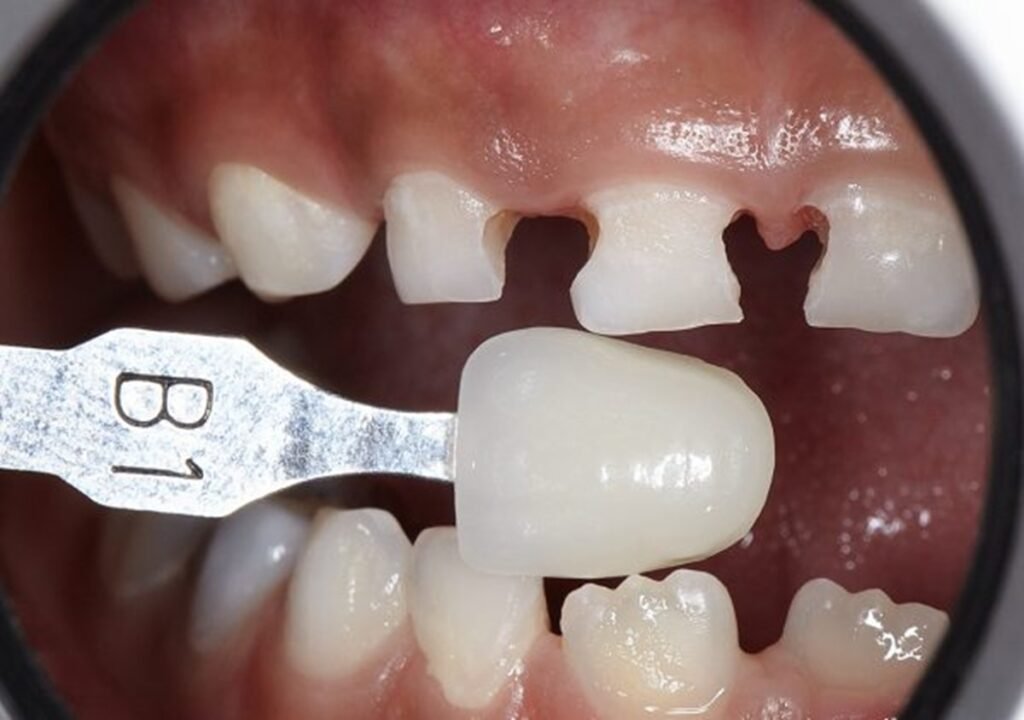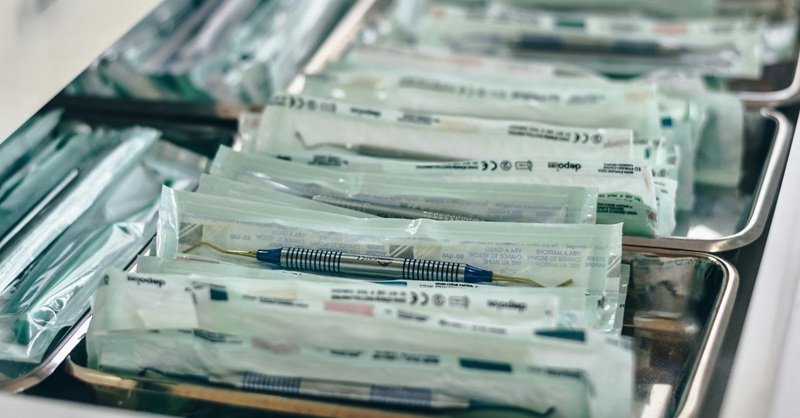
Dental resin composites are a cornerstone of contemporary dental practices, offering solutions prioritizing functionality, aesthetics, and durability. Whether performing a restorative procedure, fabricating prosthetics, or creating surgical guides, the right resin composite can enhance outcomes and streamline workflows.
This guide provides a comprehensive look at dental resin composites, focusing on the advanced options available, including Aidite’s innovative products tailored to diverse clinical requirements.
What Are Dental Resin Composites?
Dental resin composites are restorative materials used to repair decayed, damaged, or discolored teeth while maintaining a natural appearance. These materials comprise a resin matrix combined with inorganic fillers and are reinforced with coupling agents and photoinitiators for enhanced performance.
Key Features of Dental Resin Composites:
- Natural Appearance: They replicate the translucency and color of natural teeth.
- Secure Bonding: Provide a strong bond to tooth structures, ensuring durability.
- Versatile Usage: Suitable for both anterior and posterior restorations.
- Long-Lasting Performance: Designed to withstand daily wear and tear while retaining functionality and aesthetics.
Why Dental Resin Composites Matter?
Dental Resin composites are critical for successful patient outcomes and efficient dental practice operations.
1. Aesthetic Excellence
Resin composites blend seamlessly with natural teeth, enabling nearly undetectable restorations. This makes them a preferred choice for smile makeovers and other cosmetic procedures.
2. Versatile Applications
From fillings and crowns to veneers and bonding, resin composites cater to a wide range of restorative and cosmetic needs, making them indispensable for modern dental treatments.
3. Improved Patient Comfort
These materials are minimally invasive, requiring less tooth structure removal than traditional restorations. Their biocompatibility ensures patient safety and comfort during and after procedures.
Factors to Consider When Choosing Dental Resin Composites
1. Mechanical Properties
The durability and strength of a resin composite are vital for restorations that endure chewing forces. Weak materials can lead to fractures or premature wear, compromising the restoration’s lifespan.
Aidite’s resin composites are engineered to offer superior wear resistance and fracture toughness, ensuring restorations maintain their integrity under daily stresses.
2. Aesthetic Requirements
Restorations should look natural and blend with the surrounding teeth. Shade matching, translucency, and polishability are critical factors.
Aidite provides resin composites with customizable shades and translucency levels, ensuring you can meet the aesthetic demands of anterior and posterior restorations. Their materials also deliver a high-gloss finish, enhancing the restoration’s appearance.
3. Biocompatibility
Safety is a top priority when choosing restorative materials. Resins should not cause allergic reactions or irritations and must be safe for long-term use.
Aidite’s resin composites undergo rigorous testing to ensure biocompatibility. This guarantees patient safety without sacrificing performance or aesthetic quality.
4. Ease of Handling and Application
Efficient materials save time and improve the overall treatment experience for practitioners and patients. Resins that are easy to manipulate and apply are essential for streamlined workflows.
Aidite offers resin composites designed for traditional workflows and advanced 3D printing technologies. Their resins cure quickly, adapt easily to tooth surfaces, and reduce chairside time, making treatments more efficient.
5. Cost and Value
Balancing quality and affordability is crucial for maintaining a profitable practice while ensuring patient satisfaction. High-performing resins that are also cost-effective can enhance practice efficiency and outcomes.
Aidite delivers high-quality resin composites competitively, offering excellent value without compromising results. This ensures you can meet patient expectations while keeping costs manageable.
What Are the Applications of Dental Resin Composite Materials?

Dental resin composites are versatile materials serving a wide range of dental specialties. Their adaptability and aesthetic appeal make them an essential component of modern dentistry.
1. Restorative Dentistry
Dental resin composites are indispensable in repairing decayed, chipped, or damaged teeth. They are used for:
- Fillings: Composite resins restore cavities while blending seamlessly with natural teeth.
- Crowns and Veneers: Offer durable and aesthetic solutions for enhancing tooth appearance and functionality.
- Bonding: Ideal for fixing minor imperfections like cracks, gaps, or discoloration.
Aidite’s composite resins ensure long-lasting results with superior strength and aesthetics.
2. Prosthetic Applications
Resin composites play a crucial role in fabricating lifelike prosthetic devices such as:
- Dentures and Partials: Acrylic resins provide lightweight and comfortable solutions for patients with missing teeth.
- Bridges: Composite resins ensure strong and visually pleasing connections between artificial and natural teeth.
Aidite’s Advantage: High-precision resins deliver unmatched fit and appearance, enhancing the quality of prosthetic devices.
3. Surgical Applications
Dental Resin are essential in creating surgical templates and guides for implant procedures. These guides aid in:
- Accurate Implant Placement: Ensuring correct angulation and depth for optimal outcomes.
- Training Models: Used to educate dental students and professionals on implantology techniques.
Aidite’s Dental Surgical Guide Resin stands out for its precision and biocompatibility, enabling safe and effective implant procedures.
What is the Dental Resin Composite Procedure?
The dental resin composite procedure is a popular and minimally invasive treatment for restoring teeth’ function and appearance. It involves using tooth-colored composite material to repair cavities, chips, or cracks and for cosmetic enhancements such as reshaping teeth and closing gaps.
Here’s a breakdown of the process:
1. Initial Assessment
The procedure begins with a thorough examination by your dentist to assess the condition of the tooth or teeth that need treatment. X-rays may be taken to evaluate the extent of any decay or damage. The dentist will discuss your desired outcomes and choose the appropriate composite material, such as Aidite’s high-quality resin, for optimal results.
2. Tooth Preparation
The tooth is cleaned to remove any plaque or debris. If you’re receiving treatment for a cavity or damaged tooth, the dentist will remove the decayed area or broken part of the tooth using a dental drill or laser. In cosmetic cases, the tooth may not need significant removal; it can be reshaped for a better appearance.
3. Etching the Tooth Surface
The next step involves preparing the tooth surface for bonding. The dentist applies an acidic solution to create tiny microscopic roughness on the enamel, which helps the composite resin adhere better. The tooth is then rinsed and dried.
4. Application of Bonding Agent
A bonding agent is applied to the etched tooth surface. This bonding material helps form a strong connection between the resin and the tooth. The dentist carefully applies it to ensure even coverage for a secure bond.
5. Composite Resin Placement
The composite resin is applied in layers. The dentist will shape each layer to match the natural contours of the tooth and create a seamless finish. The resin is selected to match the color of your natural teeth for a flawless appearance. Aidite’s composite resins offer excellent color-matching and high aesthetic value.
6. Curing the Resin
Once the resin is shaped, a special light hardens the material. This light activates the composite resin’s polymerization process, curing the material to a durable and stable state. Each resin layer is cured before the next layer is applied to ensure proper bonding and strength.
7. Shaping and Polishing
After the final layer of resin has been cured, the dentist will carefully shape the composite to match the natural contours of the tooth, ensuring that it functions and looks like your original tooth. Once the desired shape is achieved, the restoration is polished to a smooth finish. This polishing helps prevent plaque buildup and enhances the natural shine of the composite.
8. Final Inspection
The dentist will check the bite and make any final adjustments to ensure that the restored tooth aligns properly with your other teeth. Once everything is in place, the procedure is complete, and you can leave with a restored, natural-looking smile.
FAQs
What is resin composite dental material?
Resin composite is a blend of resin and inorganic fillers designed for restorative and cosmetic dental procedures. It is widely used for fillings, crowns, veneers, and bonding. This versatile material mimics natural tooth aesthetics while offering durability, making it a go-to choice for functional and aesthetic enhancements.
Can I eat after the resin composite filling?
Yes, you can eat once the filling hardens, usually within an hour for light-cured resins. However, avoid chewing hard or sticky foods immediately after the procedure to allow your teeth to adjust and ensure the filling’s longevity.
Is resin composite safe?
Yes, resin composites are biocompatible and rigorously tested for safety in dental procedures. They do not harm teeth or gums when applied correctly by a qualified dentist, making them a reliable material for restorative and cosmetic treatments.
Is wearing resin safe?
Yes, resin is safe for dental use when applied by professionals. It integrates seamlessly with your natural teeth, does not cause harm to gums, and provides a durable, aesthetic solution for restorative and cosmetic dental needs.
How durable is resin composite?
Resin composites are highly durable and can last 5-10 years or longer with proper care. Regular dental check-ups, good oral hygiene, and avoiding habits like nail-biting or chewing on hard objects can extend their lifespan significantly.
Conclusion
Dental resin composites are revolutionizing modern dentistry with their versatility, durability, and aesthetic appeal. They provide solutions for restorative, prosthetic, and surgical applications and ensure optimal patient outcomes.
Choose Aidite’s high-performance Dental Resin to optimize your clinical outcomes and provide patients with lasting, natural-looking results.



